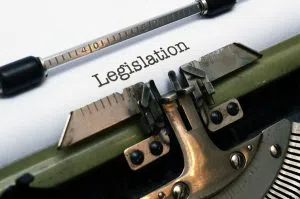
Legislation
ST. PAUL, Minn. –Minnesota’s cannabis landscape is evolving rapidly, with the state making significant adjustments to its marijuana laws ahead of issuing its first licenses. In a recent session, legislators fine-tuned the cannabis regulations, preparing for the upcoming rollout of the licensing system. While permanent licenses are still slated to become available next spring, the process has hit a few bumps along the way.
The latest Minnesota marijuana bill introduces several changes that have left many stakeholders pleasantly surprised. For starters, establishments may soon be allowed to serve low-dose THC drinks on tap. Additionally, the Office of Cannabis Management will have the authority to order recalls of any problematic products. Furthermore, registered caregivers are set to gain the ability to purchase or cultivate marijuana for medical cannabis patients.
One of the most notable adjustments is the shift from a merit-based point system to a lottery for awarding the first pre-approved licenses. The goal of this change is to prioritize the development of a social equity ownership market, benefiting individuals who have been adversely affected by past cannabis laws or reside in low-income areas.
Under the new legislation, the mandatory ownership percentage required to qualify as a social equity business has been reduced from 100% to 65%. This alteration aims to address concerns raised by social equity applicants regarding their access to the necessary funding to launch their businesses.
Charlene Briner, the interim director of the Office of Cannabis Management, emphasized the need for this shift, citing the lack of diversity in ownership within the cannabis industry. She pointed out that 85% of businesses are currently white-owned, with 75% owned by men, highlighting the need for a more inclusive marketplace.
Despite the intent behind the lottery system, some potential business owners remain skeptical, suggesting that it may not shield the state from legal challenges. While the lottery was part of the original legislation, the concept of pre-approvals was not.
According to Rep. Zack Stephenson, the House bill’s author, the pre-approvals are not licenses to sell or grow plants but rather an indication of future licensure. However, concerns remain regarding the availability of large-scale sources for recreational marijuana when retailers open, as medical licensees are prohibited from participating in the recreational market.
Furthermore, the scaling up of production to meet demand cannot commence until the issuance of the first permanent licenses, which might not occur until March 2025 or later. Jeff Taylor, the owner of BeezWax store, stressed the urgency of starting cultivation sooner rather than later, pointing out that no market has ever opened with an oversupply of products.
To address potential product shortages, the new bill grants the Office of Cannabis Management the authority to allow cultivators to use additional space for marijuana cultivation if the supply fails to meet demand.